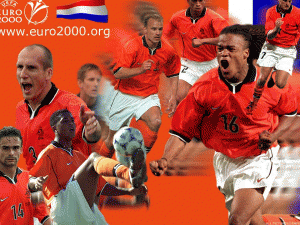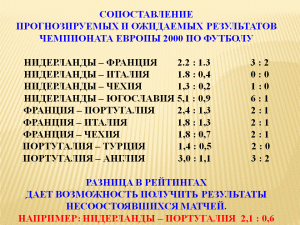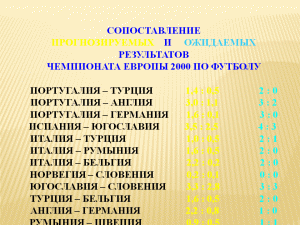In Russia there are about 110 federations in different sports and about a third of them use their rating system. There are many options for constructing a rating scale.However, in the future, there will remain one that will have the greatest “convergence” of expected and actually obtained results. Simply call this convergence.
The essence of the rating problem could be substantially simplified. Assuming that the rating is the result of the participant in the global macro-market, a problem immediately arises. All with everyone in the circle can not play. Too many participants. Then we need a rating model that would reproduce all of its results in terms of the results of the macro-tournament. In this case, there is a doubt – how accurately reproduces the unplayed part of the macro-pattern. Can you trust a model that ascribes you defeat where you won? The quality of the model is judged by the convergence of the expected and actual results. Then, based on the game score, you can calculate the actual rating and compare it with the nominally prescribed. Or, what is the same, compare the difference in ratings on the actual outcome of a personal meeting with the difference in nominal ratings. A macro-tournament participant is interested in the rating system that evaluates it with maximum accuracy or, in other words, with a minimum error.

As it is considered to be really stated in the attached literature. It was almost necessary to check the convergence at the European Football Championship 2000. Counting in advance the ratings of the participants was impossible, because all the teams came from different groups. To still get the ratings of the first round of European Championship 2000, its results were used in the SLU.


In most classifications, the question is not so. In them one can either believe or not believe. But they can not prove the correspondence between the expected and actually obtained results. A significant part of the classifications is not oriented not so much at the expense of the game, but only on its overall result or occupied place. Meanwhile, in the most complex sports – gaming there is a need to get ratings not only at the level of teams, but also players, as well as players on the individual components of the game.
Polozov, A.A. The rating system in the game sports and martial arts: Monograph.Ekaterinburg: Publishing house of the USTU-UPI, 1995. 110 p.
Information model of management of competitive activity // Abstract on competition .. Dr. ed. Sciences, 2003, 50s.
Rating in sport: yesterday, today, tomorrow / AA Polozov. – M.: Soviet sports, 2007 – 316s.




 06.04.2017
06.04.2017






